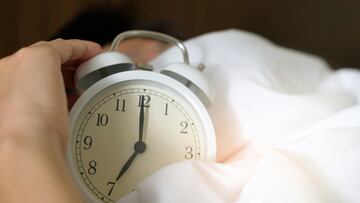If you always snooze your alarm clock when you wake up, psychology says these are the likely consequences
It’s an action many people do when it’s time to wake up, but what happens if it becomes repetitive.

“Just five more minutes.” It’s the phrase we’ve all said – or at least thought – when the alarm goes off in the morning. Those five minutes often turn into thirty, and suddenly you’re racing through everything you meant to do at a slower pace. If it happens occasionally, due to tiredness or a poor night’s sleep, there’s no real harm done.
But it becomes a problem when this reaction to the alarm repeats over and over again. Especially in the cold, dark mornings of winter, the temptation to snooze is almost irresistible. Yet giving in to it regularly can have real consequences for both your sleep quality and your overall health.
A direct consequence to sleep
According to Metabolic, psychologists and sleep experts warn that delaying your alarm disrupts your natural sleep cycles. As soon as you fall back asleep, your brain enters a new phase of the cycle – one that gets abruptly interrupted each time the alarm goes off again. Failing to complete these cycles can leave you feeling more tired throughout the day.
And that’s not the only impact. Beyond less rest, the quality of sleep suffers too. Psychologists say cognitive performance is also affected – memory, focus, and decision-making all take a hit when sleep is repeatedly interrupted.
What’s more, a lack of restorative sleep may increase levels of cortisol, the stress hormone, which leads to greater irritability and physical tension. Over time, this behavior can also affect your mood, increasing the risk of developing anxiety or depression.
With all these negative effects on the body and mind, psychologists recommend a few strategies to avoid hitting snooze. The simplest? Keep your alarm (usually your phone) far from the bed, so you’re forced to get up to turn it off – taking that first step away from sleep. They also suggest going to bed and waking up at the same time every day to help regulate your circadian rhythm. And, even if it’s tough, try to associate early mornings with something positive.
Get your game on! Whether you’re into NFL touchdowns, NBA buzzer-beaters, world-class soccer goals, or MLB home runs, our app has it all.
Dive into live coverage, expert insights, breaking news, exclusive videos, and more – plus, stay updated on the latest in current affairs and entertainment. Download now for all-access coverage, right at your fingertips – anytime, anywhere.
Complete your personal details to comment